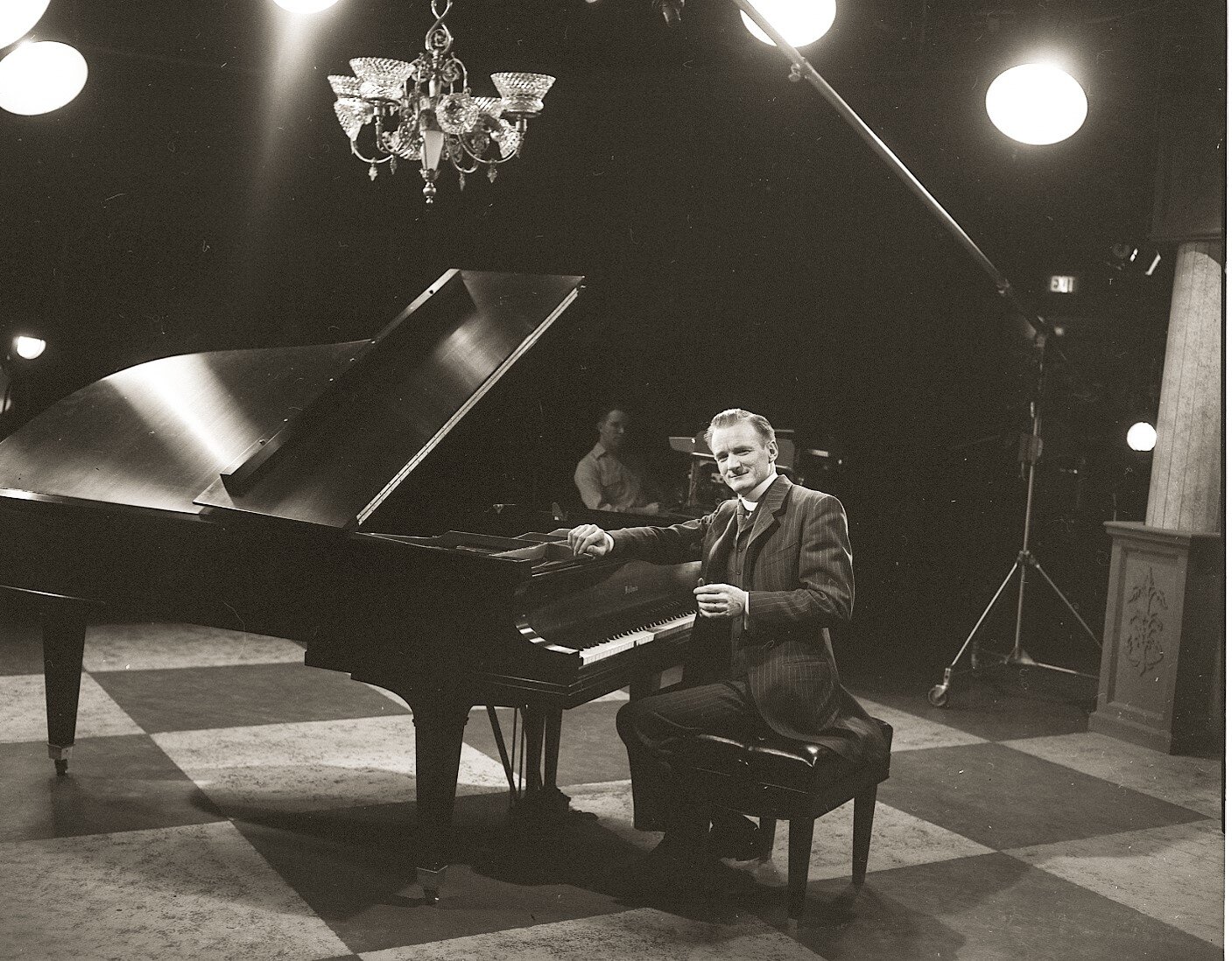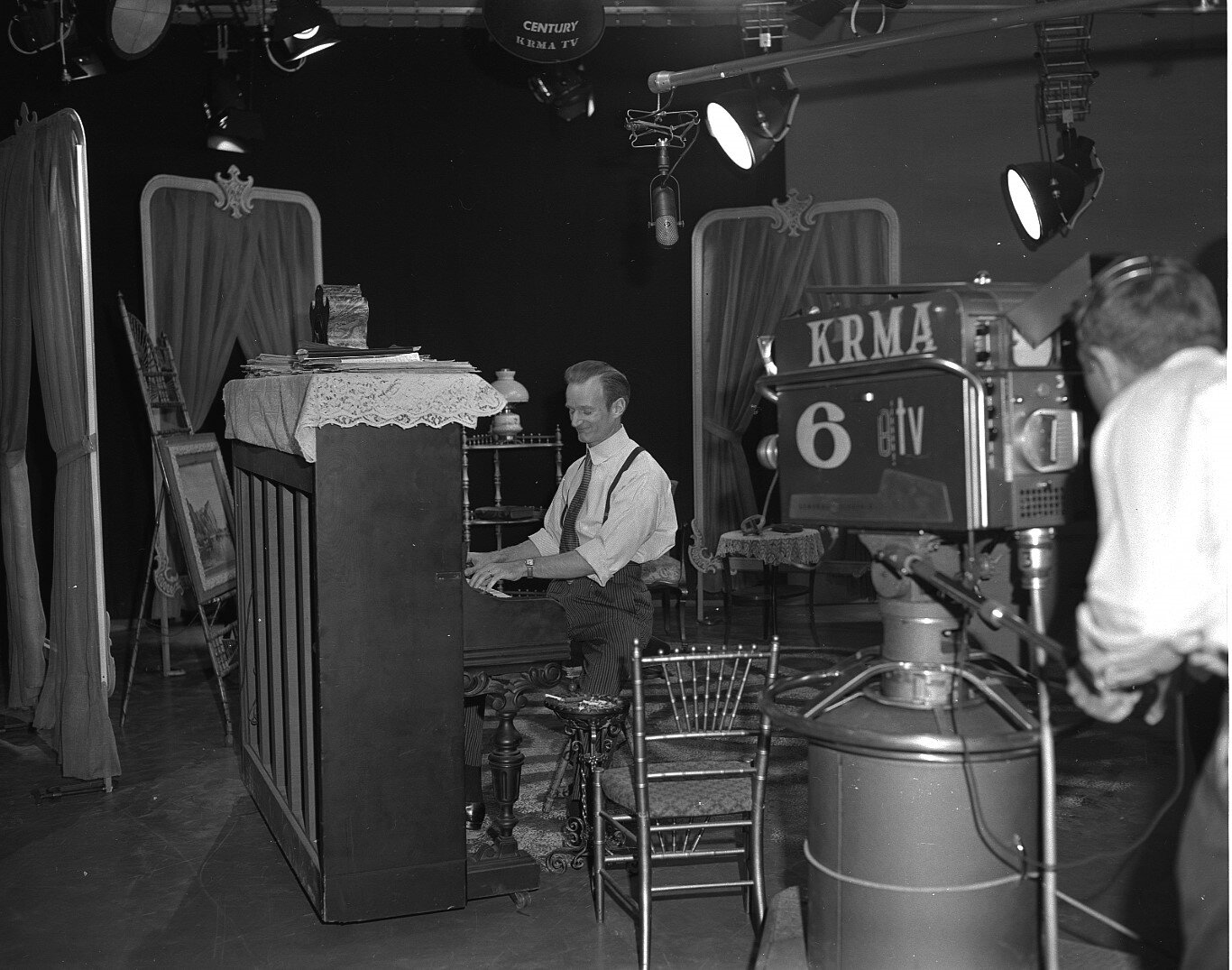Remembering Max Morath, the pioneering pianist of public television

DENVER — Max Morath, the trailblazing pianist who revived ragtime and showed America that public television could be fun with his show “Ragtime Era,” passed away June 19 in Duluth, Minnesota. He was 96 years old.
Morath was born in Colorado Springs in 1926, roughly a decade after ragtime’s national popularity concluded. He came from a musical family. Morath’s mother, Gladys, was a silent film piano player in Colorado.
Morath had a fascination with older music from a young age. His first job was in high school at KVOR radio in Colorado Springs. His longtime friend Larry Melton, writing for The Syncopated Times — an online newspaper dedicated to ragtime, jazz and swing coverage — recalled a story about a teenage Morath:
“While still in high school I recall Max describing his job as a disc jockey on Colorado Springs KVOR radio and I can hear him remembering one incident just before a midnight sign-off. The studio phone rang, and it was the composer Vincent Youmans thanking Max for playing the composer’s old songs. Youmans was in a nearby Tuberculosis Sanitorium listening to Max’s late-night program in Denver.
“Max was fascinated by the technology of communication, and he always maintained that technology drives entertainment. He studied each medium and understood the elements of performance from both sides of a microphone or camera.”
In 1948, Morath graduated from Colorado College, where he earned a degree in English. For the next decade he worked in music and theater. By 1959 he was playing piano for dramas in Cripple Creek.
One year later, Morath hit it big. Working with KRMA-TV in Denver (now Rocky Mountain PBS), Morath wrote and produced “The Ragtime Era” for National Educational Television (NET), which was the predecessor of PBS. The show provided not only music, but a deep dive into the history of ragtime, musical comedy and Tin Pan Alley.
“Ragtime Era was everything educational television was not supposed to be: upbeat, fun and entertaining,” former NET President James Day wrote in his book, “The Vanishing Vision.”

Max Morath on the set of "Ragtime Era" in January of 1962. (Photo: Rocky Mountain PBS Station's Archived Memories)
But make no mistake: “Ragtime Era” was highly educational. It had to be, or else NET would not have picked the series up.
“NET wanted to get away from the professor in front of the gray drape, but not too far away,” Morath told Current in 1996. “It’s worth a reminder that in those days all NET programs had to have some sort of educational cachet. There was a consultant from the Colorado College music department built into our budget.”
It was Morath’s passion for the music that made the show engaging. In a 1961 article published in The New York Times, critic Jack Gould wrote, “for some ears, this corner’s included, a little ragtime is a lot but Mr. Morath’s affection for the oldtimers proved contagious. And when he sat down to illustrate rag piano his zest and craftsmanship asserted themselves informatively and entertainingly.”
The show was also unique due to KRMA’s studio. At a time when KQED was shooting in a San Francisco warehouse and WGBH operated out of a Boston skating rink, KRMA was the first public television station to have a dedicated studio for production.

Max Morath recording "Ragtime Era" in 1959 at the KRMA studio. (Photo: Rocky Mountain PBS Station's Archived Memories)
Morath, who was white, made a point in “Ragtime Era” to credit Black musicians like Scott Joplin for pioneering the ragtime sound at a time when slavery was a recent memory (Joplin, born in 1868, was the son of a previously enslaved man from North Carolina).
“Joplin’s name, I think, should be better known than it is today,” Morath said in the second episode of “Ragtime Era,” which you can watch below.
Though “Ragtime Era” was only a dozen half-hour episodes, it is difficult to overstate the show’s impact. The series aired on NET stations across the country, and it was so popular that some commercial stations purchased the right to broadcast episodes, which made Morath something of a household name.
“He does more than just talk about ragtime on television. He sells it,” The Denver Post once wrote. “In an affluent society, it seems a shame that more money cannot be channeled into educational television.”
After the success of “Ragtime Era,” Morath produced “The Turn of the Century,” another KRMA production that focused on America from 1890 to the 1920s. The 15-part series was even more popular than “Ragtime Era.”
Morath moved from Colorado to New York City in the 1960s to work as a touring musician. He toured his one-man show across the country, making appearances on national programs like “Today,” “The Tonight Show,” as well as NPR and PBS, of course. When PBS celebrated its 25th anniversary with a gala, Morath was the closing act. He toured until he was 80 years old.
In 2016, Morath was inducted into the Colorado Music Hall of Fame. That same year, he spoke to Rocky Mountain PBS about the history of “Ragtime Era” for an episode of Arts District. You can stream the segment below.
“These were good television shows,” Morath said. “And that was new to educational broadcasting.”
Kyle Cooke is the digital media manager for Rocky Mountain PBS. You can reach him at kylecooke@rmpbs.org.